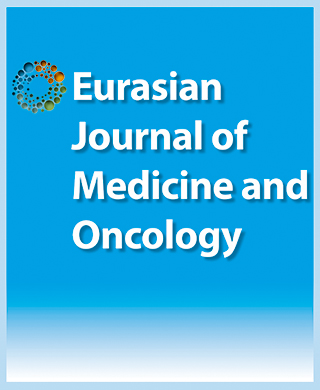
The Role of Latent Toxoplasmosis in Alzheimer’s Disease
Nuran Karabulut1, Fatih Karaboga2, Burak Subasi31Department of Medical Microbiology, University of Health Sciences, Okmeydani Training and Research Hospital, Istanbul, Turkey, 2Department of Neurology, Elazig Training and Research Hospital, Elazig, Turkey, 3Department of Psychiatry, Kayseri Training and Research Hospital, Kayseri, Turkey
Objectives: This study aimed to investigate whether there was any role of latent toxoplasmosis in Alzheimer’s disease (AD). Methods: Forty-four patients with the probable AD and 30 healthy individuals were included in this prospective study. The patient and healthy groups were matched by sex, age, dietary habits and socioeconomic status. T. gondii IgG antibody in all individuals was studied by enzyme-linked immune sorbent assay method. Results: The present study consisted of 44 patients with the probable AD with 25 male and 19 female, and 30 healthy individuals with 19 male and 11 female. The mean age of the patients was 78.18±8.95 years, and the control group was 74.33±7.89 years. It was not found statistically significant difference in age and gender between patients and healthy individuals (p:0.06 and p:0.58, respectively). The percentages of T. gondii IgG antibody positivity were 71% for the patients with probable AD and 67% for the healthy individuals. The difference in T. gondii IgG antibody positivity between the Alzheimer and the healthy control group was not statistically significant (p:0.73). Conclusions: These findings showed that there was no association between toxoplasmosis and AD. Thus, T. gondii infection could not be considered having any role in AD. Keywords: Alzheimer’s disease , Toxoplasma gondii , Toxoplasmosis
Cite This Article
Karabulut N, Karaboga F, Subasi B. The Role of Latent Toxoplasmosis in Alzheimer’s Disease. EJMI. 2020; 4(3): 380-383
Corresponding Author: Nuran Karabulut




